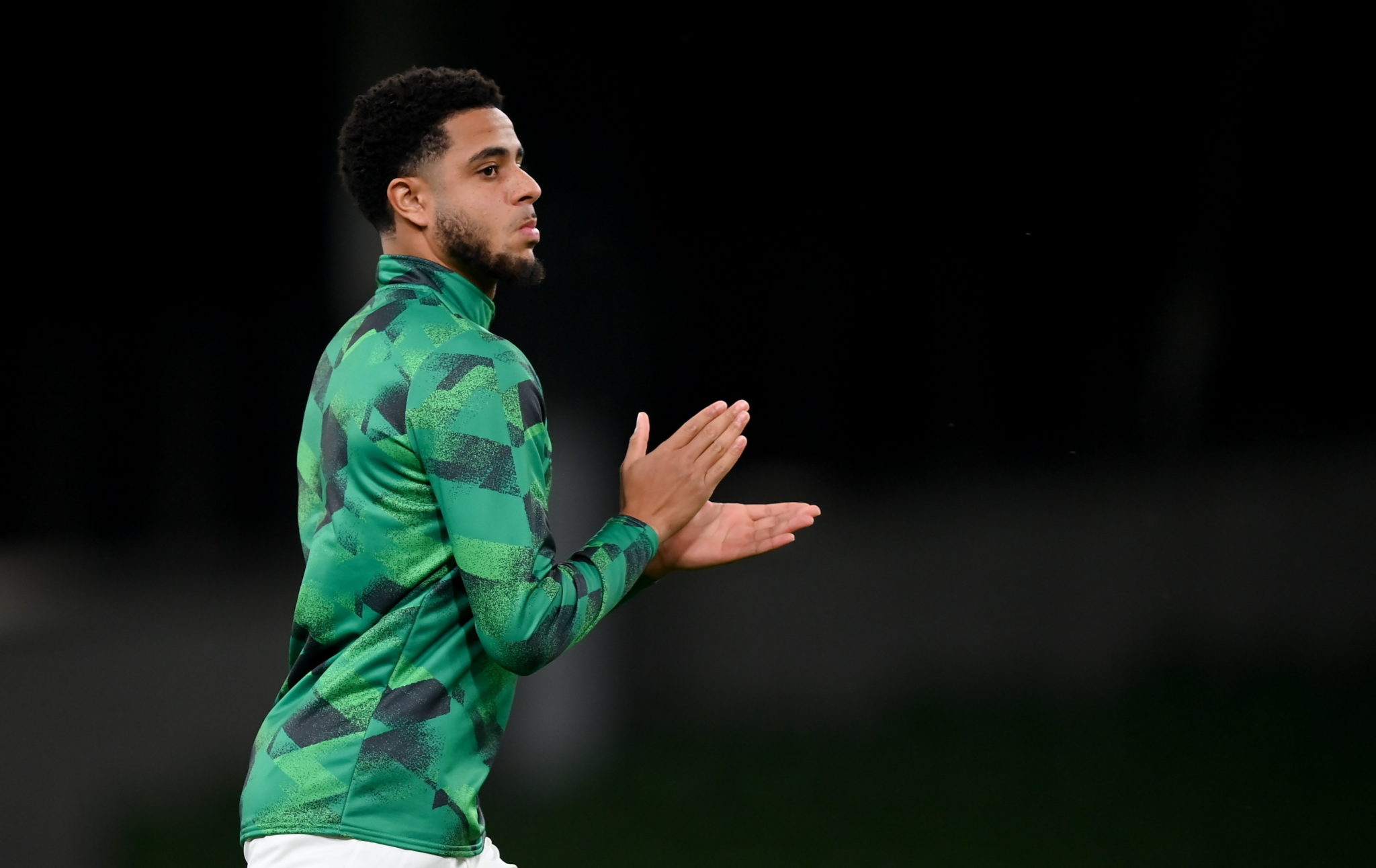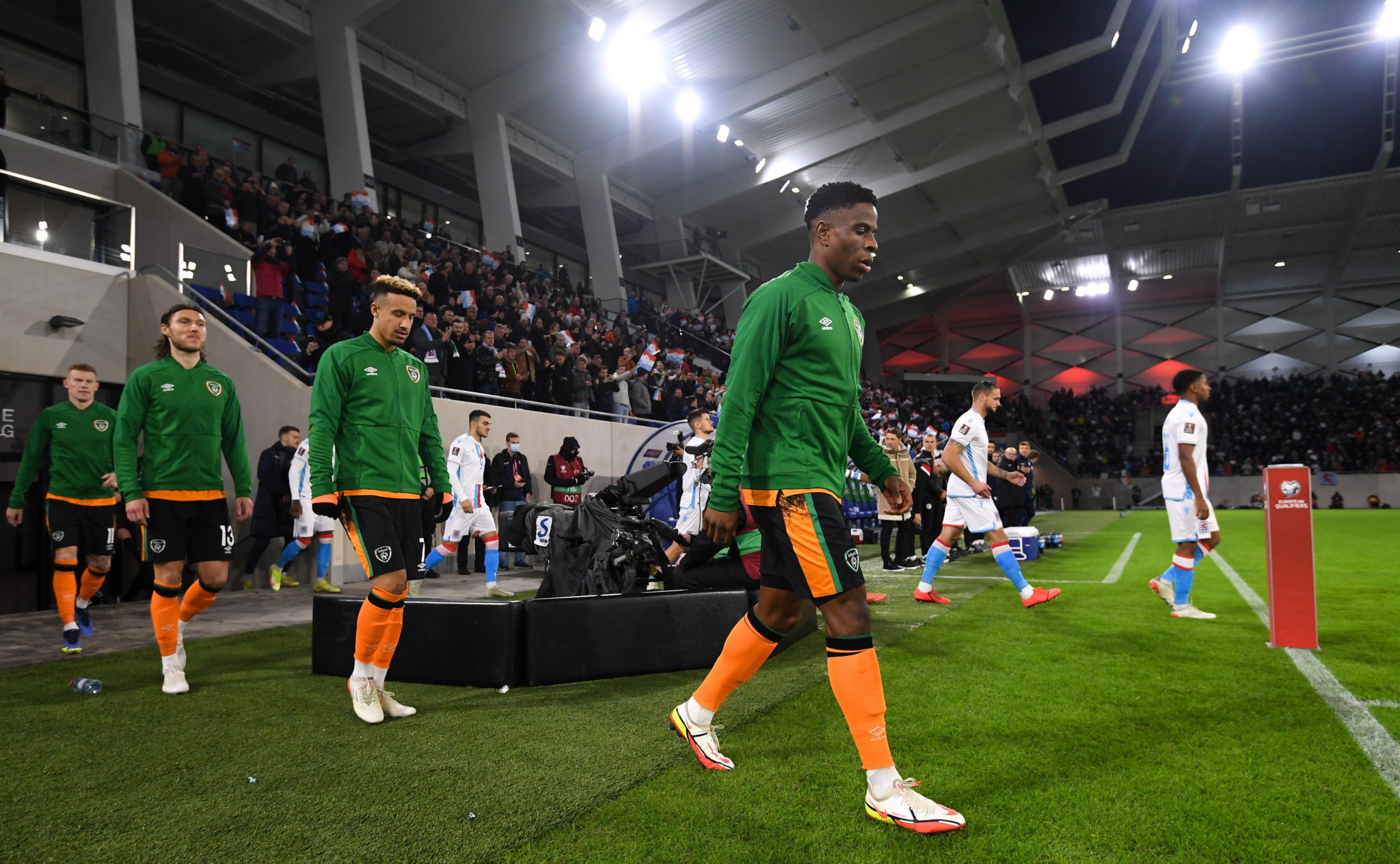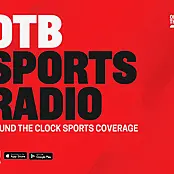Recovering from a serious knee injury, 19-year-old Gabriel Adebambo plans to keep developing to become the next Irish player of Nigerian heritage to make his mark in international football.
Adebambo signed for Stoke City from Dundalk FC in August 2020, after coming through the ranks of a talented Leixlip United team that included current senior international Andrew Omobamidele, his childhood best friend.
The midfielder made a handful of appearances for the Stoke under-23s and believed he was playing his best football of his career before rupturing his ACL against the Newcastle United earlier this season.
He told OTB Sports about his injury and expected recovery.
“I won’t play again this season," Adebambo says. "It's one of those things that happen in football. You have to just keep positive and come back a better player.”
Described as “athletic, strong, good passer of the ball and with a great personality” by former coach Kenny Molloy, Adebambo has represented Ireland up to under-17 level and will be aiming to break into Jim Crawford’s under-21 squad.
He is following in the footsteps of players such as Omobamidele, Chiedozie Ogbene, Gavin Bazunu, and Adam Idah, who are part of an exciting new generation of Irish players with Nigerian heritage.

Clear ambitions
Gabriel began his footballing journey at the Leixlip academy in 2007. Those who knew him then said his ambitions were clear.
“He would have told you at six years of age that he wanted to go to England,” said his Leixlip United coach Molloy.
Coach Molloy recalled that that team was filled with talent, as 14 of them went on to play the League of Ireland, and five players went on to play in leagues in England, including Andrew Omobamidele, who plays as a defender for Premier League club Norwich City.
Describing Gabriel’s development, Molloy told OTB Sports: “He has probably had the longest route possible over to England out of all my lads, the toughest pathway anyway. He was the last to go, but he stayed patient with his dream to move over and play.”
Gabriel's father, Olusegun Adebambo, bought his son and Omobamidele to and from Leixlip United games when they were young.
“I would drive the boys, Gabriel and Andrew, to all the training and games, and the boys became best friends,” recalls Olusegun.
Olusegun came to Ireland after he fled Nigeria in the late 1990s, a period when Africa’s most-populous country underwent years of domestic political turmoil, as a military government clamped down on pro-democracy protests.
He described how the political situation affected his life.
“You could only get a job if you know someone, a big politician or if you are fortunate to come from a rich family, that’s how you would get a job after finishing school.”
As the turmoil continued and Olusegun made plans to leave, the Nigerian football team, nicknamed the Super Eagles, began to impose themselves on the world stage, reaching the World Cup in 1994 for the first time and winning their second African Cup of Nations title the same year.

The 'New Ireland'
Olusegun exited Nigeria through the border with Benin and eventually secured refuge in North Kildare. He met his wife while in Direct Provision, spending just over a year there and then began working in a garage and starting a family.
“We are really grateful for the way the Irish people accepted us. It was wonderful. We sought asylum and they looked after us,” Olusegun told OTB Sports.
This generation of footballers with Nigerian heritage representing the Irish football team have become an emblem of a multicultural nation – something that was recently noted by manager Stephen Kenny.
He wrote in his programme notes ahead of the recent international game against Portugal. “It’s clear that football represents all of the strands of society in Ireland.”
“This Ireland team represents a new, changing multicultural Ireland. As football represents all strands of society then this team reflects all social classes and communities across Ireland.”
The ‘New Ireland’ is now beginning to be reflected in the underage and senior international teams.
“When you put that green jersey on it’s a moment where you’re like ‘wow’ I’m representing my country here and it’s a moment that you will always remember and treasure,” said Gabriel.
“When you don’t get picked for the squad you are devastated because you want to represent your country. But when you do, you make the most of it and try to do your best.”
Gabriel is already thinking of the comeback while concentrating on his recovery.
“My rehabilitation is not going to be difficult, but it will be a daunting, long, slow process.”
Olusegun is confident that his son will come back stronger than ever.
“Gabriel just does what makes him happy, he lives a simple life and is just happy where he is,” said Olusegun.
David Wilson and Michael O’Reilly report.
Jurgen Klopp is a sour loser | Miguel Delaney
Football on Off The Ball, brought to you by Sky.
All the football you love in one place across Sky Sports, BT Sport & Premier Sports.
Download the brand new OffTheBall App in the Play Store & App Store right now! We've got you covered!
Subscribe to OffTheBall's YouTube channel for more videos, like us on Facebook or follow us on Twitter for the latest sporting news and content.









